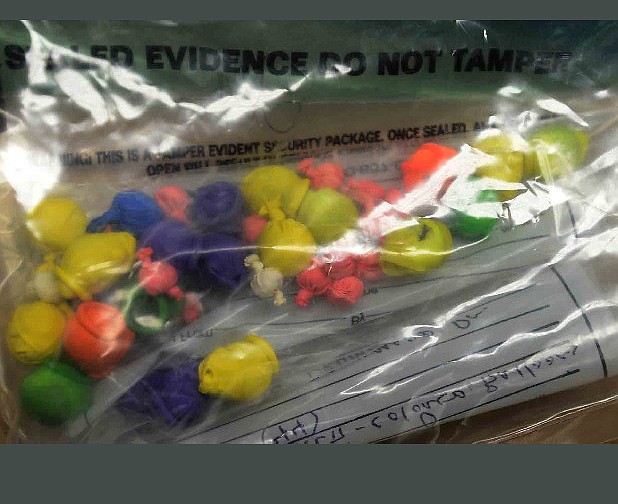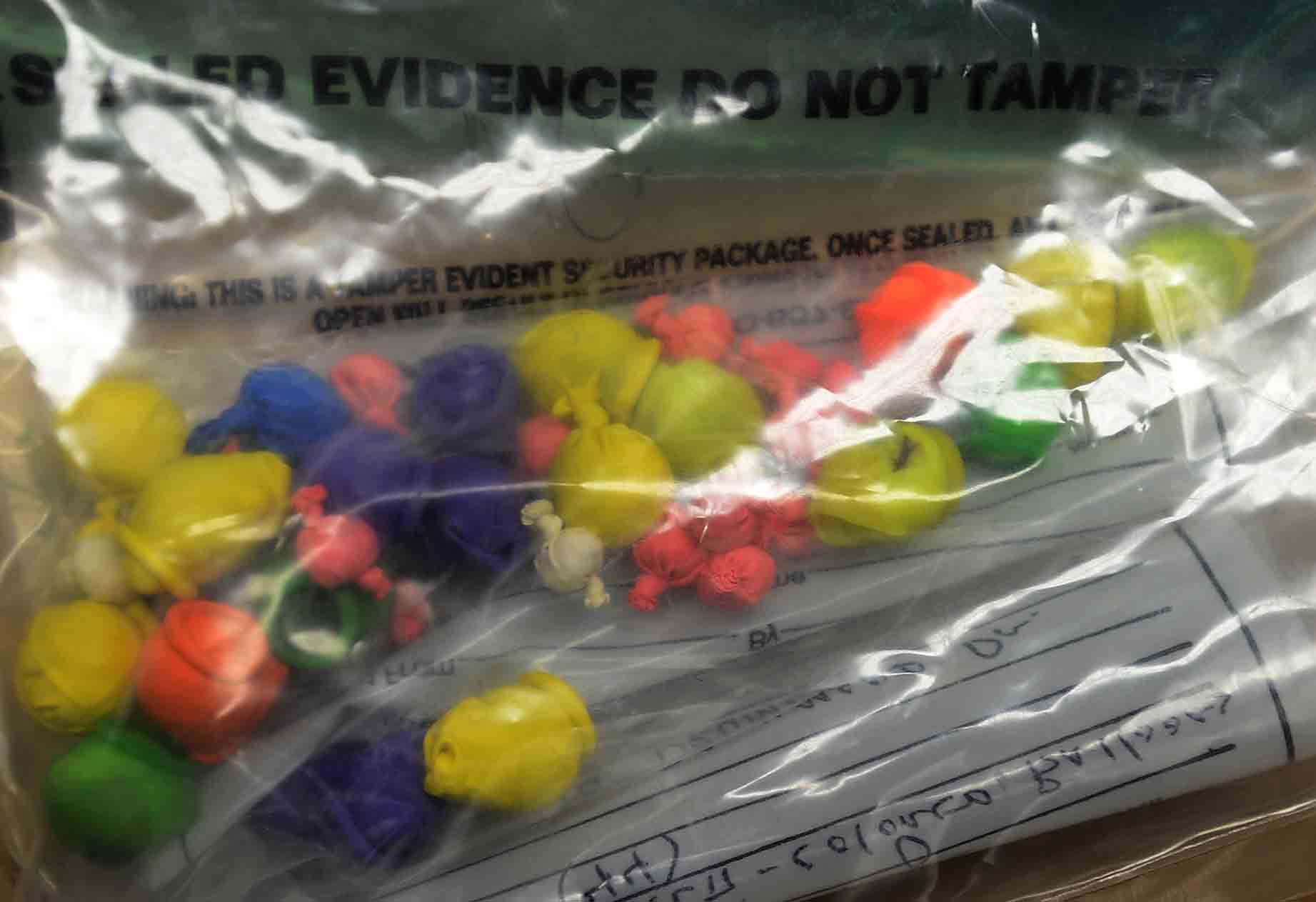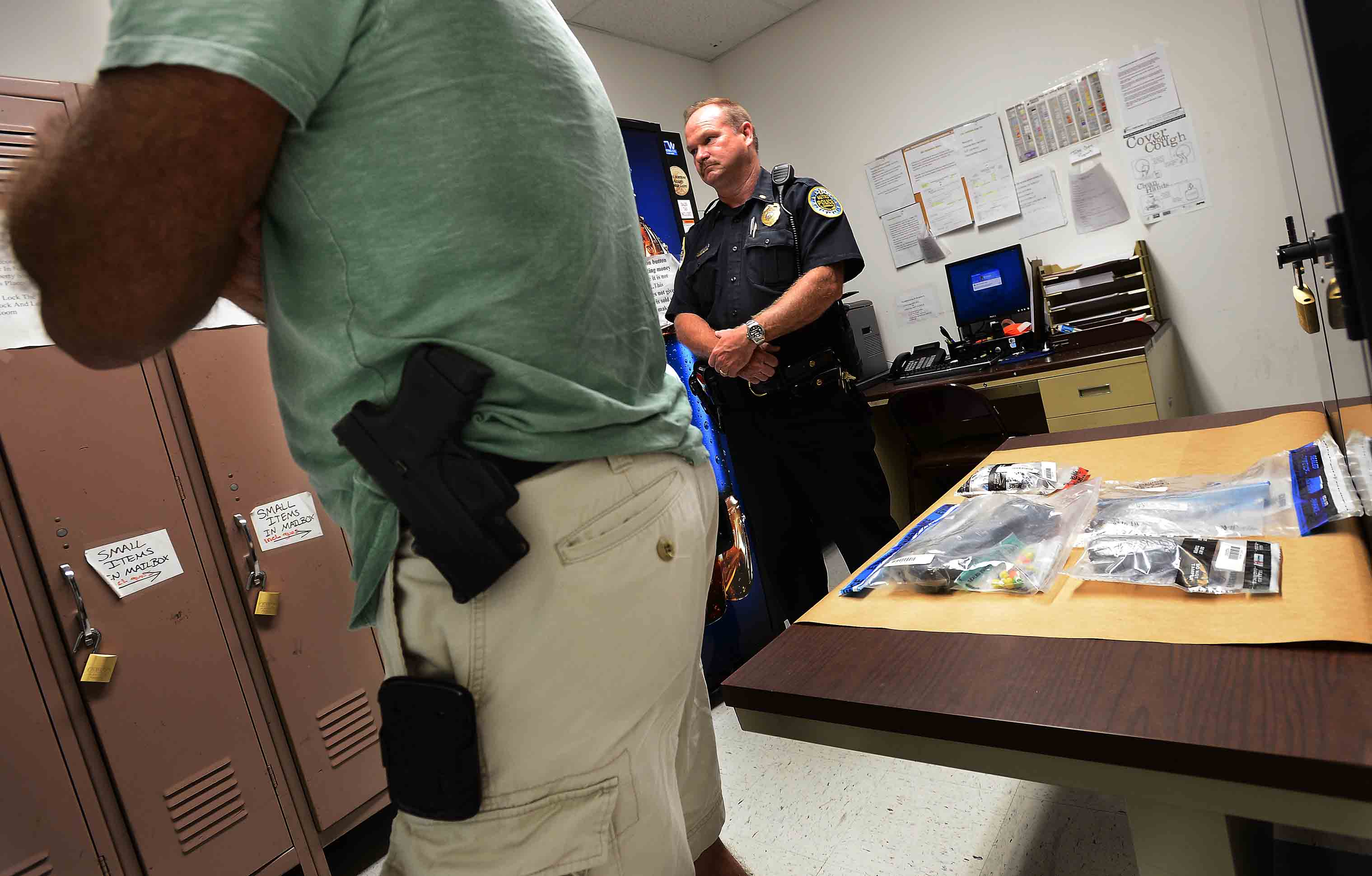HEROIN ON THE RISELarger cities throughout Tennessee are seeing a surge in heroin cases.Jurisdiction 2010 / 2011 / 2012• East Tenn. 14 / 17 / 44• Hamilton 2 /4 /4• Knox 4 /5 /22• Middle Tennessee 77 / 121 / 241• Davidson 58 / 96 / 189• West Tennessee 75 / 107 / 143• Shelby 72 / 103 / 138Source: TBI
The visits were noticeable to a home on Moody Sawyer Road. People were coming up all day. The foot traffic never seemed to stop.
That's what prompted someone to call Chattanooga police.
A man and woman reportedly were selling heroin from inside a dark-colored vehicle.
The arrest last week of 42-year-old Ronald Rutledge of Nevada and 19-year-old Laura Michelle Kirchner of Michigan on charges of possession of heroin was a reminder that a drug that had seemed to vanish from the streets for decades has returned.
In the Chattanooga case, buyers purchased rolled-up lottery tickets, each containing 0.5 grams of heroin. Police seized as evidence more than 35 lottery tickets the couple had with them. Five tickets with heroin inside were valued at about $500.
While Chattanooga hasn't had the large number of seizures or arrests seen in major cities, local investigators say heroin may be making a comeback.
"That's the first we've seen of it," said Chattanooga police narcotics Sgt. Tammy Cook.
It's likely investigators will find more.
"It's available. It's usually cheaper," said Brad Byerley, resident agent in charge of the Drug Enforcement Administration office in Chattanooga.
Pills such as Oxycontin -- synthetic opiates -- are derived from heroin and can produce the same effects. While prescription pills sell for about $40 apiece, it can take several pills for a user with high tolerance to experience that same feeling of euphoria.
Prescription pill abuse still is behind most of the admissions to programs operated by the Council for Alcohol & Drug Abuse Services, but there is a "slight increase" in the number of people citing heroin use, said Debbie Loudermilk, director of outpatient services.
"We're hearing it," Loudermilk said. "[It's] people who are having difficulty accessing prescription drugs with all of the controls that have been put in place this year with the prescription drug safety act. It has slowed down some of that."
There have been signs that a heroin comeback was brewing even before the crackdown on prescription pills and doctor shopping began.
In 2010, the Hamilton County Sheriff's Office dismantled a distribution ring. Two overdose deaths from heroin were reported that year in Hamilton County. No one has died of heroin in the years since, even though the number of drug overdose deaths now outnumbers murders in Hamilton County.
In 2011, TBI investigated four heroin-related incidents in Hamilton County. The numbers held steady in 2012.
Chattanooga police investigated two heroin incidents last year through interstate traffic stops. In January, nearly a gram of heroin was turned in after officers served a search warrant.
"It's not at epidemic levels," Byerley said. "Yes, we are seeing it. We're seeing it in North Georgia and the Chattanooga metropolitan area."
It's the same story throughout the state's larger cities, according to the Tennessee Bureau of Investigation. Statewide data show that the number of incidents has more than doubled since 2010.
Most cases are in Shelby and Davidson counties. Only in 2012 did the number of cases in Knox County enter double digits. In 2012, there were 241 cases investigated in Middle Tennessee, 143 in West Tennessee and 44 in East Tennessee.
In the meantime, Loudermilk said, those who treat the effects of such addictions are on the watch.
"We haven't seen a huge influx yet, but it's starting to trickle in," she said.
Other problems will follow, she predicted. Most people who use heroin prefer to deliver the drug intravenously. There will be an increase of shared needles and potentially an increase in hepatitis and HIV.
"With that comes a whole other host of health problems and concerns," she said.
Contact staff writer Beth Burger at bburger@timesfreepress.com or 423-757-6406. Follow her on Twitter at twitter.com/abburger


